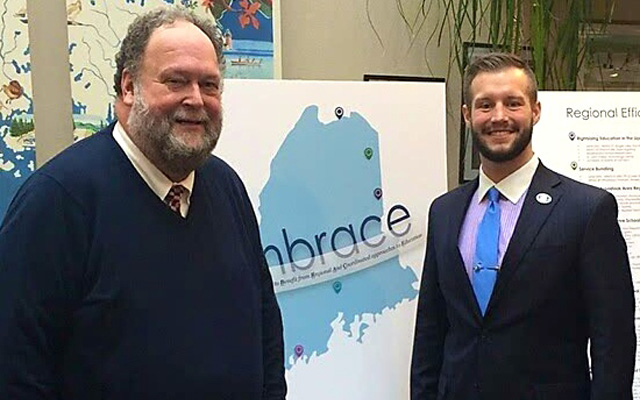
Grant funds are coming in for local school districts to find ways to share services, which could mean big cost savings over the next five years, but it could also mean the loss of a few jobs.
Earlier this year, Maine Department of Education (DOE) announced a competitive application for grants for school districts pursuing regionalization efficiency efforts.
Recently MSAD 1 was selected by the Maine DOE to receive a grant of up to $162,500. The money is part of the EMBRACE initiative: Enabling Maine students to Benefit from Regional And Coordinated approaches to Education.
Maine DOE received 21 applications from across the state. The total request in funding came to $7.6 million.
MSAD 1 has partnered with MSAD 45 in Washburn to propose a project to bundle special education, psychological services, transportation, technology and facilities services that are currently being operated independently.
“Governor LePage and the Maine DOE challenged our school leaders to find new ways to work together to reduce cost and benefit Maine students,” Rep. Trey Stewart (R-Presque Isle) said. “I am proud that Maine’s star city is working with partners in the county to lead the way on service bundling. This grant will benefit students across Aroostook County.”
Rep. Stewart serves on the Legislature’s Joint Standing Committee on Education and Cultural Affairs.
“Bottom line is I feel good about it,” MSAD 1 Superintendent Brian Carpenter said. “It’s going to give us an opportunity to expand our cooperation and share service and reduce cost, bring money into the district from the grant and work with our neighboring school in Washburn.”
Carpenter said the five-year plan will include a reduction in jobs.
“If we do technology then you’re looking at an overseer of technology for both SAD 45 and SAD 1,” he said.
This could lead to a “director of technology” position.
“We can each use probably a two-day, three-day split of a technology person in our buildings and they can use a technology person in their district,” he said.
Other positions that could face similar changes are facilities manager and transportation director.
“It’s not regionalization, it’s shared services,” he said. “And they’re providing us money to do it versus regionalization, which there’s a cost to in the long run: the closing of high schools, loss of community expectations. This is more of getting people to cooperate and reduce administrative costs and put more money back in the classroom.”
“The key now is to get together and work out the details, develop a business plan for it and then see where we apply the money and what happens,” he said.







